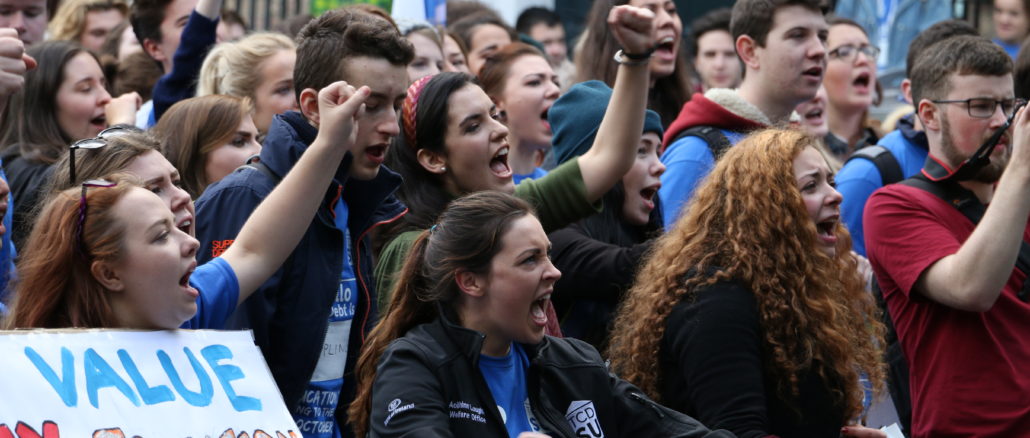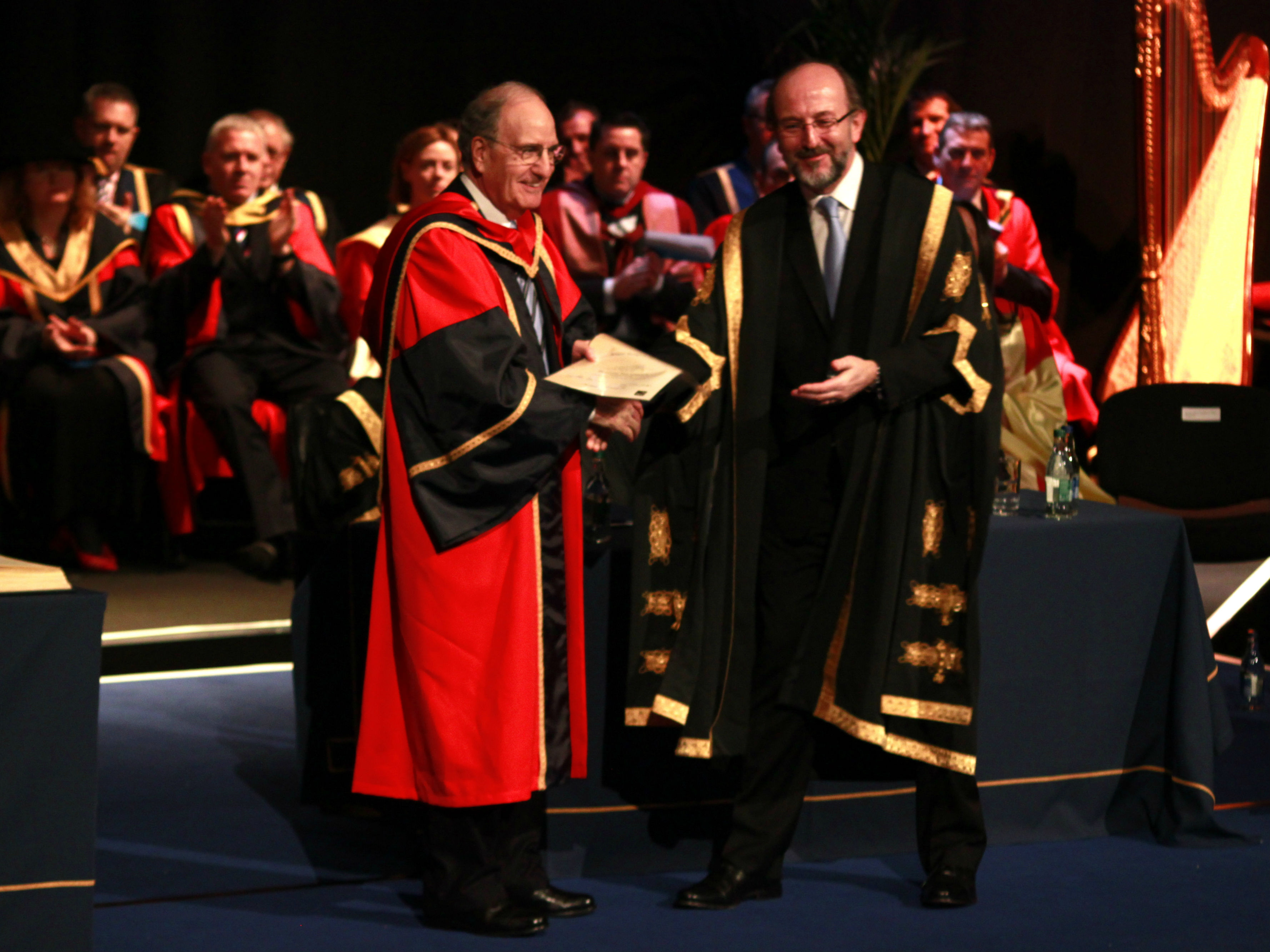
[dropcap]Thousands[/dropcap] of students from colleges around the country marched through Dublin City Centre on Wednesday in protest of an income contingent loan scheme, first proposed by the Cassells report.
The demonstration was called by the Union of Students in Ireland (USI) and was backed by a number of trade unions, youth organisations and Students’ Unions.
Prior to the protest, the USI predicted a turnout of 5,000 students, an estimate far exceeded by the crowds of up to 12,000 who marched from the Garden of Remembrance to Merrion Square, a short walk from both Leinster House and the Department of the Taoiseach.
The demonstration opposed the introduction of a loan scheme that would see students asked to pay over €20,000 to the state upon reaching an income threshold after graduation, and instead lobbied for a publicly funded education system.
The idea of an income contingent loan scheme was set out in a report from the Expert Group on Future Funding for Higher Education, chaired by Peter Cassells and commonly known as the Cassells report.
In this report, the committee outlined three possible funding options for higher education; a system funded by general taxation with no student contribution fee; an increase in spending and the retention of the student contribution fee, which currently stands at €3,000; or an income contingent loan scheme.
Bodies represented at the march supported the idea of a publicly funded higher education system, with the USI warning that a loan scheme would severely limit access to education, particularly for mature students and people from disadvantaged socio-economic backgrounds.
Speaking to The College View, USI President Annie Hoey said that education is a “public good, a public service and it should be publicly funded.”
“We’re going to stand united against the introduction of a loan scheme or an increase in fees and strapping debt around students’ necks before even stepping out of the graduation hall,” she said.
Echoing similar sentiments was Jack Leahy, VP for Academic Affairs at the USI, who said Wednesday’s march was just the beginning of the campaign.
“We know that the decision (on whether to implement the loan scheme or not) is going to be made by the Education Committee in June, so this is the kick-off for a national campaign that’s going to last between now and then,” he said.
DCU was just one of many institutions who went out in support of public funding, with students from Carlow IT, WIT, AIT, UCC, UL, NUIG and Queens University Belfast travelling to march in the capital. Large numbers from all main Dublin based institutions were in attendance, including students from UCD, who are no longer affiliated with the USI.
DCU Students’ Union has campaigned in support of the USI over the past few weeks and organised buses to bring DCU students to and from the demonstration.
VP for Welfare and Equality, Cody Byrne, estimated that over 600 DCU students were in attendance and flagged the campaign as one of the most important of the year.
“In essence, this is the best thing that we as a Students’ Union could do,” he said.
“We’re going to see the response back from the politicians and hopefully it is a positive one. If it indicates that it’s going towards the loan scheme, we’ll just bite back harder.”
Possessing the same fighting spirit was a selection of guest speakers, including a mature student, trade union representative, transition year student and Blindboy Boatclub of the Rubberbandits, who addressed the crowd at Merrion Square.
Carly Bailey, a mature student at Trinity College Dublin, urged the Government to consider the effects of a loan system on the youth.
“I say to the Government, on behalf of each and every student, don’t create another policy that is detrimental to our young people. Don’t inflict debt on young people before they’ve even started,” she said.
“I call on the Government now to do the right thing. Publicly fund education. It is not some unobtainable fantasy that can’t happen. It happens in most European countries.”
Annie Hoey ended the day’s speeches with an impassioned address to the crowd, calling on students to contact TDs in their own constituencies to raise the issue.
She said: “We believe education is a right and not a privilege. Education is a public service and we, as a society clearly believe this.”
“How dare they tell us to pay for a public service over 30 years. The whole point of a public service is to give everyone access to the most fundamental rights in order to live a healthy and fulfilling life. This is the only public service that can provide economic opportunities for our country. “
“We need degrees, not fees,” she said.
Rebecca Lumley
Image Credit: Andrew Byrne
Videos by Leanne Hanafin and Ciara Moran




Leave a Reply